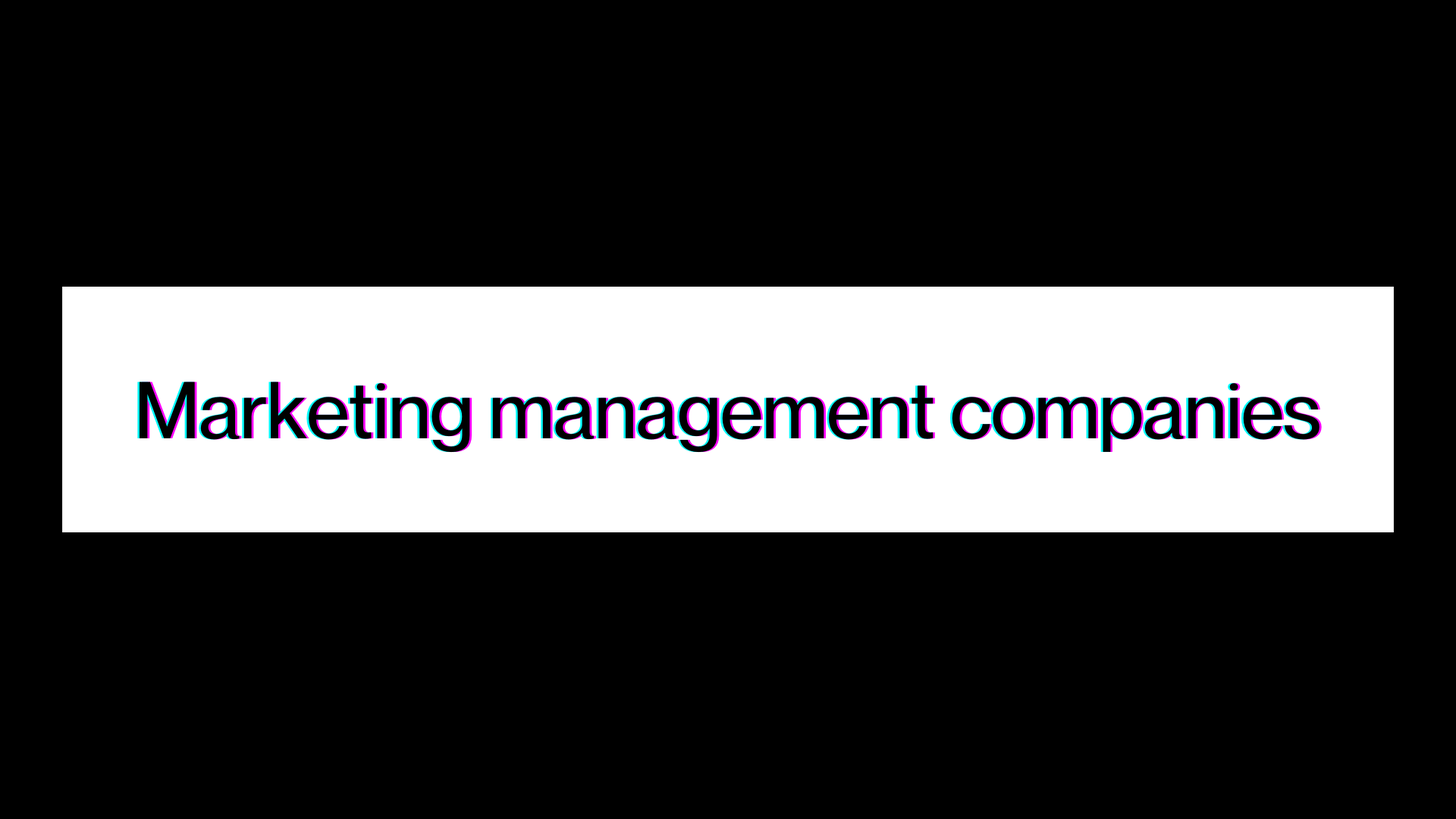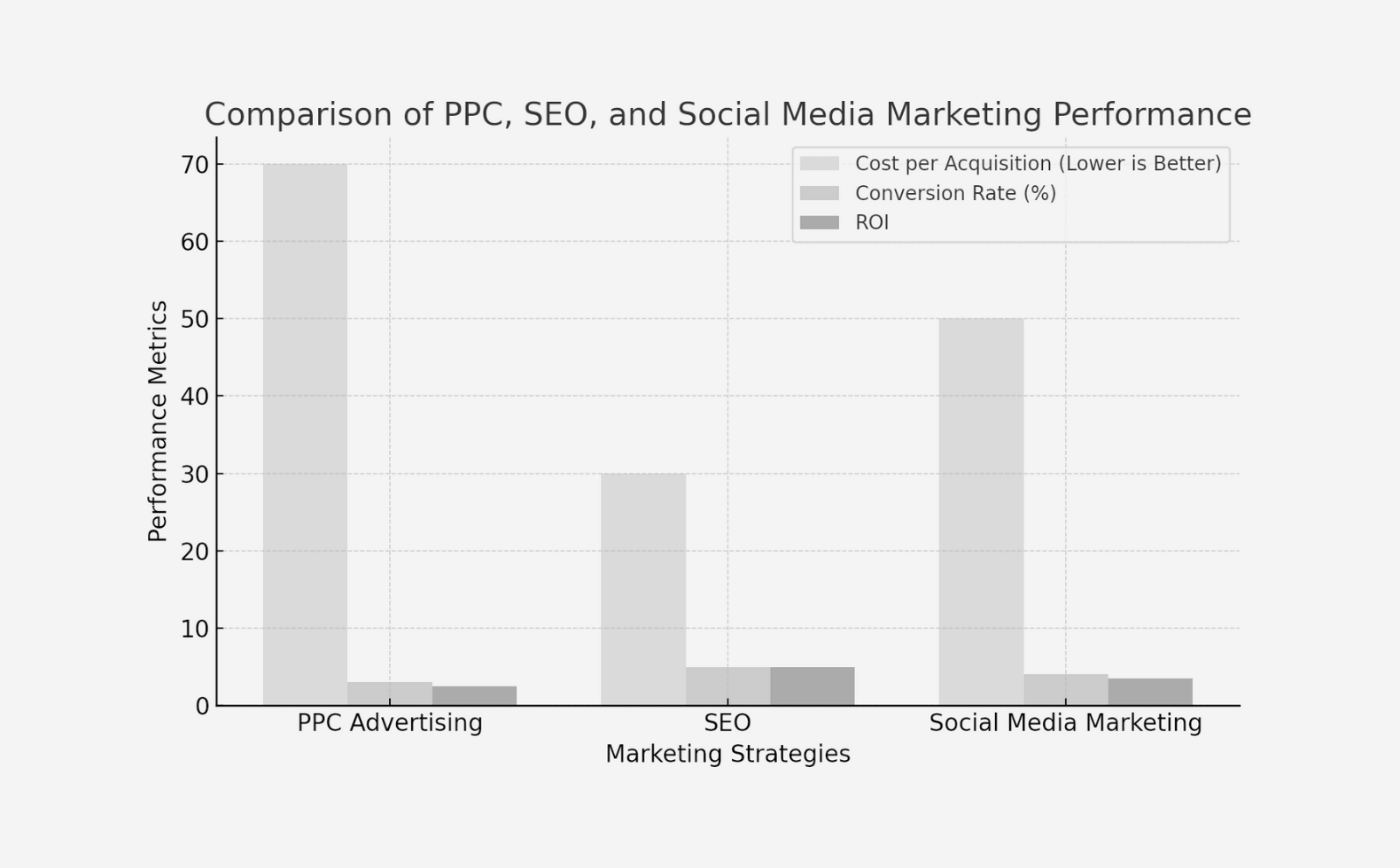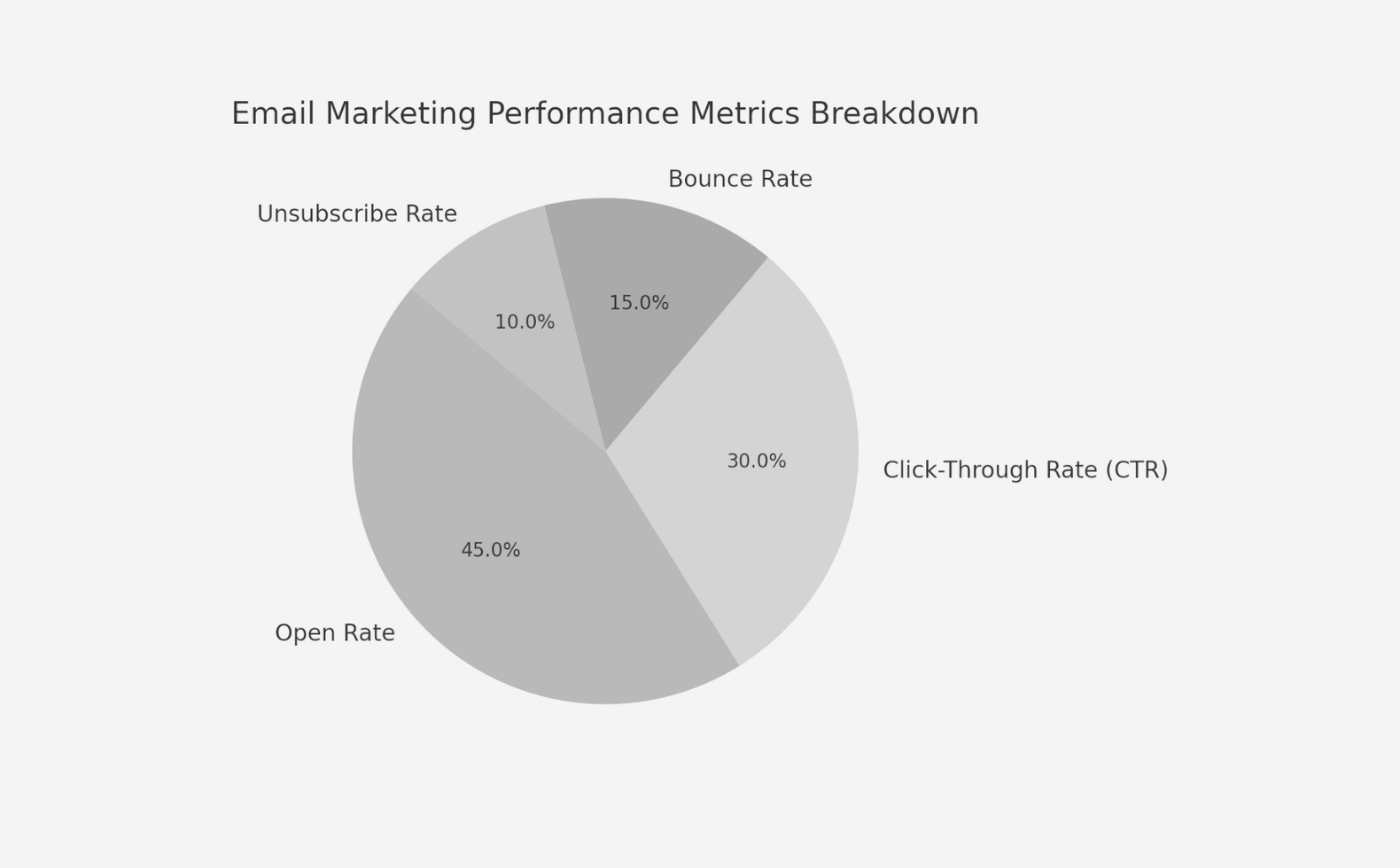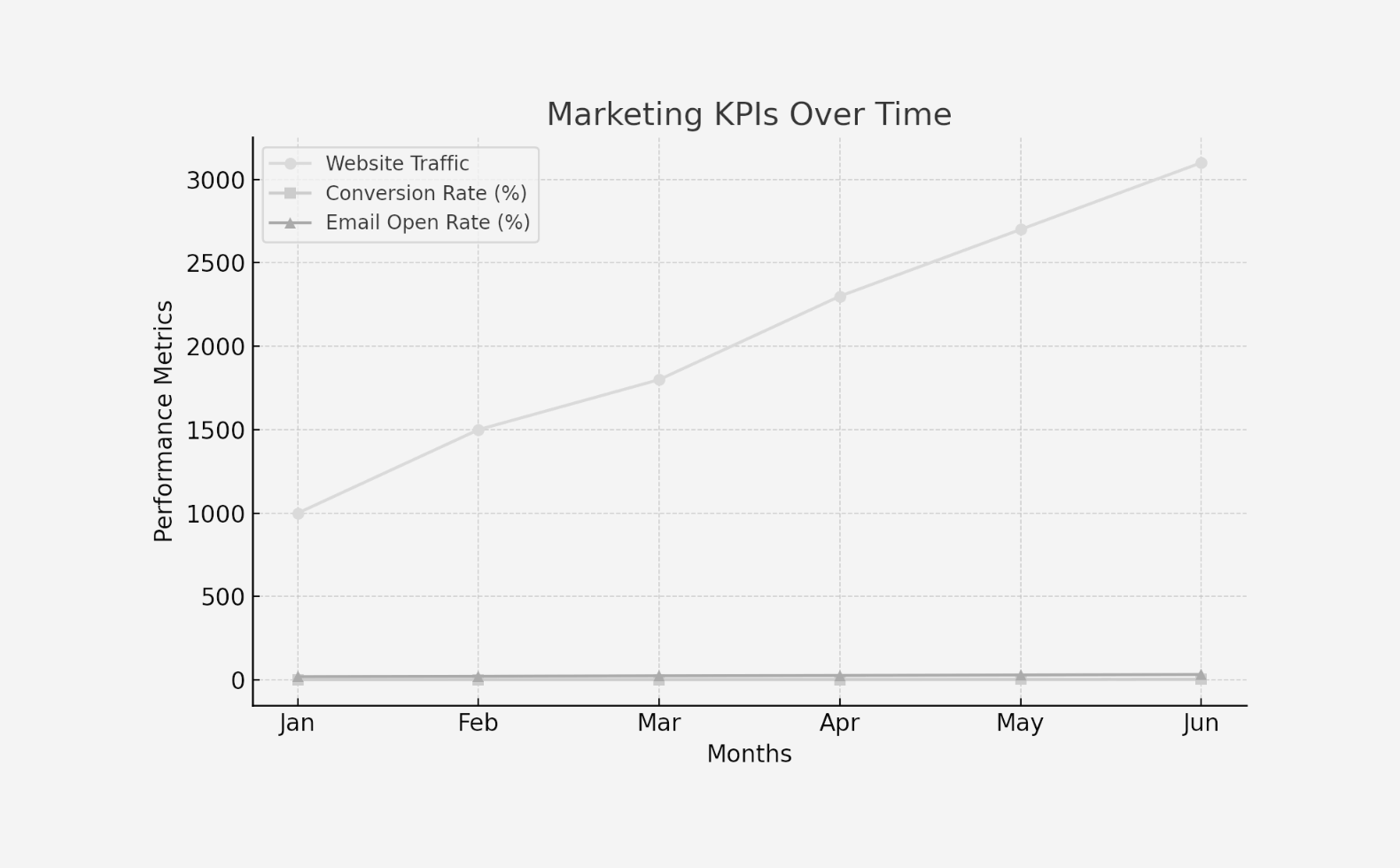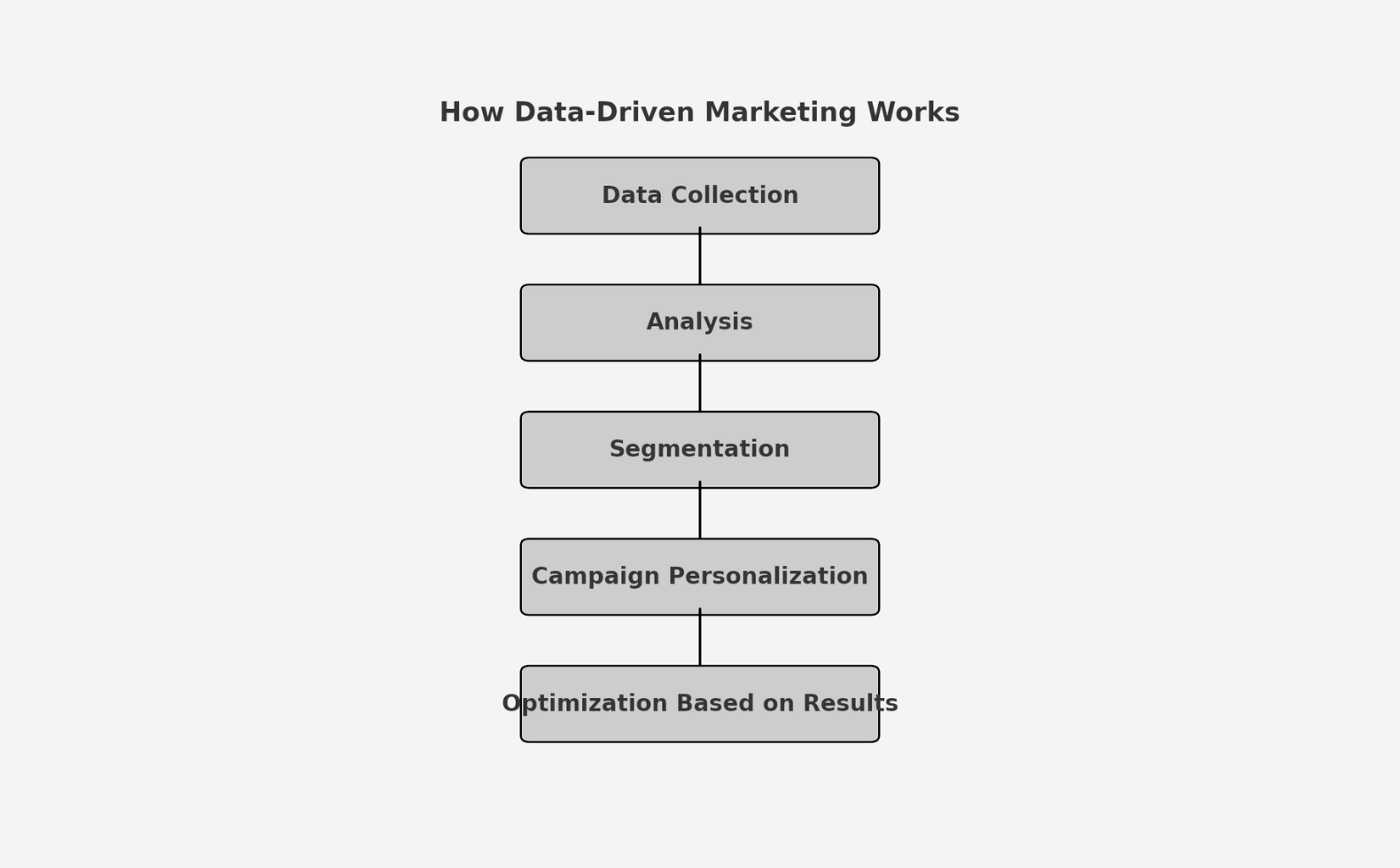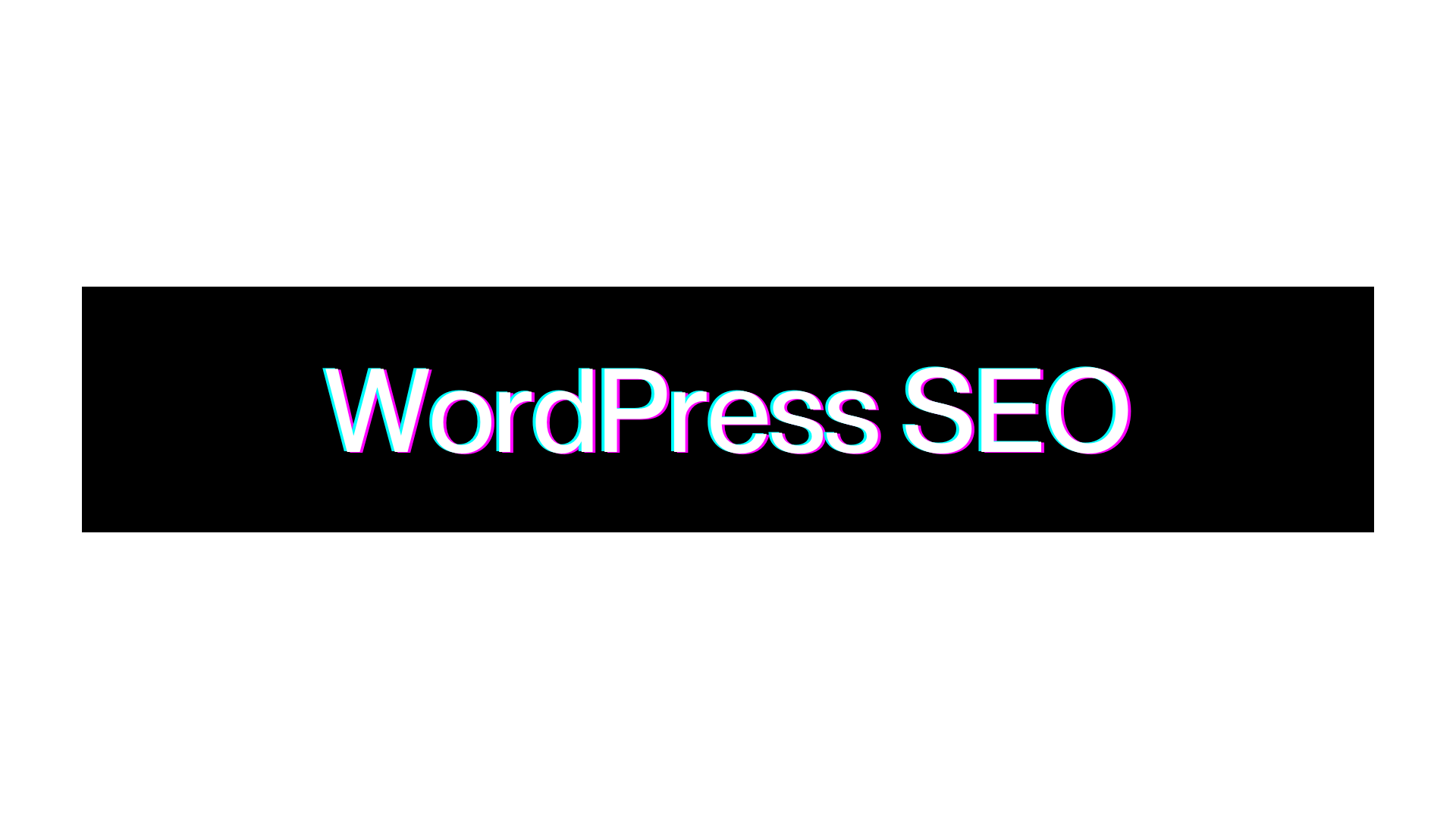Table of contents
- Watch the quick guide: Marketing management agencies explained
- Understanding marketing management agencies
- Core services offered by marketing management agencies
- The Holdings Co.: A case study in effective marketing management
- Measuring success: Key performance indicators (KPIs)
- The role of data and analytics in marketing management
- A marketing management company is a force multiplier
- FAQs
A marketing management company often combines PPC, SEO, and social media marketing to maximize results.
Marketing is the backbone of any business, driving growth, brand awareness, and customer engagement. However, executing a comprehensive strategy requires expertise in multiple areas, from social media marketing to search engine optimization. This is where a marketing management company comes in. These agencies provide businesses with strategic solutions to maximize visibility, increase website traffic, and improve customer conversion rates.
Watch the quick guide: Marketing management agencies explained
We love videos. Check out this 2-minute guide to marketing management companies.
Understanding marketing management agencies
What do they do?
A marketing management company is a digital marketing service that helps businesses execute marketing strategies through various digital and traditional channels. Their services include:
Social media marketing services: Managing content, engagement, and ad campaigns on platforms like Facebook, Instagram, and LinkedIn.
Search engine marketing (SEM): Running paid advertising (Google Ads) and organic search optimization (SEO).
Content marketing: Creating high-quality content to educate and attract customers.
Email marketing: Designing targeted campaigns to nurture leads.
Graphic design and branding: Establishing visual identity and brand consistency.
Marketing strategy development: Creating customized plans tailored to business goals.
Benefits of working with a marketing management company
Partnering with an agency can help businesses:
Save time and money: Avoid wasting resources on ineffective marketing efforts.
Leverage expert insights: Gain access to specialists in digital marketing.
Improve brand strategy: Build a solid reputation and increase brand awareness.
Achieve better ROI: Optimize advertising budgets for higher conversion rates.
How marketing agencies tailor strategies to different businesses
A marketing management company doesn't use a one-size-fits-all approach. Instead, they tailor their strategies to the unique needs of each business based on industry, audience, and objectives. Below is a comparison of different sectors and the key marketing tactics used for each:
Industry | Key marketing tactics | Examples |
|---|---|---|
E-commerce | SEO, social media ads, email marketing | Amazon, Shopify stores |
Local businesses | Google My Business, local SEO, direct marketing | Restaurants, salons |
Tech & SaaS | Content marketing, PPC, influencer marketing | HubSpot, Salesforce |
Healthcare | Patient outreach, reputation management, SEO | Dental clinics, hospitals |
Real estate | Social media ads, Google Ads, website optimization | Realtors, property developers |
💡 Understanding industry-specific strategies helps businesses align their goals with the right marketing approach.
Core services offered by marketing management agencies
Social media marketing and management
With nearly 4 billion people on social media networks, platforms like Facebook, Instagram, and Twitter offer businesses an opportunity to connect with their target audience. Agencies provide services such as:
Content creation: Crafting posts, videos, and graphics, often combined with influencer marketing.
Social media advertising: Running paid ad campaigns for audience targeting.
Community management: Responding to comments on social media channels and fostering engagement.
Search engine optimization (SEO)
SEO improves a company’s visibility on search engines like Google. Agencies optimize websites for organic traffic, qualified leads, and increased website traffic through:
Keyword research: Identifying high-impact search terms.
On-page SEO: Optimizing content and meta descriptions.
Link building: Increasing domain authority for better search rankings.
Pay-per-click (PPC) advertising
Google Ads and social media ads help businesses reach the right audience efficiently. Agencies manage:
Ad campaigns: Running PPC ads to drive traffic and conversions.
Budget optimization: Preventing businesses from wasting money on ineffective ads.
How PPC compares to other marketing strategies
Pay-per-click (PPC) advertising is a powerful tool, but it works best with other marketing efforts. Below is a comparison of PPC vs. SEO vs. social media marketing in terms of benefits and costs:
Strategy | Benefits | Cost considerations |
|---|---|---|
PPC advertising | Instant traffic, highly targeted | High cost per click (CPC) for competitive industries |
SEO | Long-term organic traffic, credibility boost | Requires time and continuous effort |
Social media advertising | Audience engagement, brand awareness | Paid ads can be costly, organic reach is limited |
💡 The best approach is often a combination of PPC, SEO, and social media marketing to maximize results.
When deciding where to invest marketing dollars, it’s essential to understand the strengths and weaknesses of PPC, SEO, and social media advertising services. While PPC provides instant visibility and SEO builds long-term organic traffic, advertising on social media platforms helps with brand awareness and engagement. The chart below compares these strategies' cost per acquisition, conversion rates, and ROI to help businesses determine the best fit.
Content marketing
Content creation plays a critical role in digital marketing, with agencies offering:
Blog writing: Engaging content to attract and inform customers.
Infographics: Visually appealing data representations.
Video marketing: Short-form and long-form videos for social media.
Email marketing
Email marketing continues to be one of the highest ROI channels, providing a $36 return for every $1 spent. Agencies support businesses by:
Building email lists: Attracting subscribers.
Sending newsletters: Keeping customers engaged.
Automated workflows: Sending emails based on user behavior.
Email marketing best practices for higher engagement
Email marketing is highly effective when done correctly. To increase open rates and conversions, businesses should follow these best practices:
Personalization: Tailor content by using the recipient’s name and past behavior.
Segmentation: Divide subscribers into lists based on their interests or purchase history.
Compelling subject lines: Keep them short and engaging.
A/B testing: Test different email versions to see what works best.
Call-to-action (CTA): Determine what the recipient should do next (e.g., shop now, read more).
Email marketing continues to be one of the highest ROI-generating strategies, yet its success depends on key performance indicators like open rates, click-through rates, and bounce rates. The pie chart below shows the average distribution of email marketing performance metrics, helping businesses identify areas for improvement.
Email marketing performance benchmarks (all industry averages)
The following table shows the email marketing benchmark metrics for all industries:
Metric | Benchmark |
|---|---|
Open rate | 21.33% |
Click-Through Rate (CTR) | 2.62% |
Bounce rate | 0.7% |
Unsubscribe rate | 0.2% |
💡 High open and click-through rates indicate strong audience engagement and effective messaging.
The Holdings Co.: A case study in effective marketing management
About The Holdings Co.
The Holdings Co. is a marketing management company that offers SEO, social media, digital marketing services, and AI-driven strategies. Their expertise assists clients in:
Growing local search rankings through search engine marketing.
Boosting brand engagement via social media platforms.
Optimizing marketing performance with data-driven strategies.
Notable success stories
The Holdings Co. has helped brands like Booked and Creditpicks build strong digital presences through a combination of:
Service | Impact |
|---|---|
SEO & PPC | Increased website traffic and conversions |
Brand strategy | Enhanced industry reputation and brand awareness |
Social media advertising | Drove qualified traffic through targeted ads |
Measuring success: Key performance indicators (KPIs)
Understanding marketing performance requires tracking specific KPIs, including:
Website traffic: Measuring unique visitors and page views.
Conversion rates: Evaluating the percentage of leads turned into customers.
Customer engagement: Tracking social media and email marketing interaction rates.
Return on investment (ROI): Determining the profitability of campaigns.
Businesses must monitor key performance indicators (KPIs) over time to evaluate the effectiveness of a marketing strategy. The graph below demonstrates the evolution of website traffic, conversion rates, and email open rates over six months, highlighting how a well-optimized strategy can foster growth.
Common marketing challenges and how to overcome them
Many businesses struggle with marketing, especially when handling it in-house. Below are common challenges and solutions:
Challenge | Solution |
|---|---|
Low website traffic | Improve SEO, run targeted PPC campaigns, leverage content marketing |
High ad costs with low ROI | Optimize PPC campaigns, adjust targeting, refine messaging |
Poor social media engagement | Post high-quality content, use video marketing, run interactive polls |
Email open rates declining | Test different subject lines, personalize emails, segment lists |
💡 Marketing agencies help businesses navigate these challenges efficiently, ensuring their strategies evolve with market trends.
The role of data and analytics in marketing management
Data-driven decisions ensure marketing strategies remain efficient and cost-effective. Agencies utilize analytics to:
Identify trends: Monitoring industry and audience behavior.
Refine campaigns: Adjusting ad and SEO strategies based on performance.
Enhance personalization: Customizing content for potential customers.
Why data-driven marketing is the future
The marketing world is changing quickly, and data-driven marketing is leading the way. This approach allows businesses to make decisions based on insights rather than assumptions. Below are the key benefits of using data analytics in marketing:
Benefit | Impact |
|---|---|
Predictive analysis | Forecasts future trends and customer behaviors |
Personalization | Creates more targeted, relevant ads and content |
Real-time optimization | Adjusts campaigns instantly for better results |
Cost efficiency | Prevents wasted ad spend by focusing on what works |
💡 Agencies like The Holdings Co. use AI-powered analytics to optimize marketing efforts and increase ROI.
Marketing in today’s fast-paced business environment requires data-driven decision-making. By collecting and analyzing data, personalizing campaigns, and optimizing strategies, data-driven marketing ensures that every dollar spent is utilized more effectively. The flowchart below provides a step-by-step breakdown of how this process works.
A marketing management company is a force multiplier
A marketing management agency like The Holdings Co. offers businesses a structured approach to direct marketing and customer engagement, online sales, and brand growth. Companies can optimize their strategies, increase website traffic, and achieve long-term business growth using the company's expert services.
Are you interested in discussing your marketing needs? We're a marketing management company that can help! Contact us at [email protected] to schedule a quick call.
FAQs
What is a marketing management company?
A marketing management company specializes in planning, executing, and optimizing marketing campaigns. It provides services such as social media marketing, search engine marketing (SEO and PPC), and content marketing to improve brand visibility and drive sales.
What does a marketing agency do?
A marketing agency assists businesses in reaching their target audience through multiple channels, including SEO, Google Ads, social media platforms, and email marketing. It creates marketing plans to improve brand strategy and maximize ROI.
How much do you pay a marketing agency?
Pricing depends on services and agency size. Typical costs include:
Service | Cost range (monthly) |
SEO | $1,000 – $5,000+ |
PPC advertising | $500 – $10,000+ |
Social media management | $1,500 – $7,000+ |
Email marketing | $500 – $3,000+ |
How do marketing agencies measure success?
Digital marketing services use analytical tools to measure campaign effectiveness by tracking conversion rates, sales growth, website traffic, customer engagement, and brand awareness.
What should I look for when choosing a marketing management agency?
Key factors include:
- Industry experience
- Proven track record (case studies, client reviews)
- Range of services (SEO, content marketing, PPC, etc.)
- Customized strategy development
By working with a company like The Holdings Co., businesses gain access to strategic expertise, targeted marketing efforts, and customized solutions to drive success.

